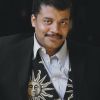10 Best-Selling Biology Books Millions Love
Explore Biology Books recommended by Neil Degrasse Tyson, Bill Gates, and Mark Suster—top experts endorsing best-selling science reads
Create a Biology course with AI
Generate a personalized AI-powered course, tailored to your goals and topics of interest
When millions of readers and top experts agree on a book’s value, you know it’s worth your time. Biology, as a field, touches everything from our health to the natural world around us, making these widely embraced books essential companions for anyone curious about life’s complexity. These selections reflect proven value, having captured both popular and expert endorsement in recent years.
Neil Degrasse Tyson, renowned astrophysicist and science communicator, appreciates classics like The Origin of Species for their foundational insights. Bill Gates, tech pioneer and philanthropist, highlights The Gene for its profound exploration of genetics shaping medicine. Meanwhile, Mark Suster, a venture capitalist, praises The Body for blending storytelling with scientific depth, showing how biology permeates daily life.
These best-selling books offer tested frameworks and compelling narratives, yet if you seek a reading experience tailored precisely to your Biology interests and goals, consider creating a personalized Biology book that combines these validated approaches with your unique background and needs.
Recommended by Chris Oliver
Retired surgeon and health innovator
“What a great read! You could almost pass your surgical exams after reading this book! The Body: A Guide for Occupants by Bill Bryson.” (from X)
Bill Bryson, known for his knack for making science approachable, turns his focus to the human body with a mix of humor and insight. You’ll discover how your body functions, its self-healing abilities, and the quirks that make it unique, all infused with Bryson’s signature anecdotes and fascinating facts — like how your body produces millions of red blood cells in mere moments. The chapters take you on a head-to-toe journey, offering surprising details that deepen your appreciation for your own anatomy. This book serves anyone curious about biology but especially those who enjoy learning through storytelling rather than dry textbooks.
What started as a mission by DK to visually capture the animal kingdom resulted in this richly illustrated encyclopedia, co-created with the Smithsonian Institution. You explore detailed photographs and explanations that examine animals from head to toe, covering their anatomy, behaviors, and evolutionary adaptations. Chapters dive into specialized topics like flight feathers, sensory organs, and social communication, offering vivid insight into wildlife diversity. If you’re curious about how animals survive, interact, and evolve, this book provides a thorough, image-driven journey that benefits both students and nature enthusiasts alike.
This personalized biology book explores proven techniques in the biological sciences, tailored to match your unique background and interests. It covers a wide range of foundational and specialized topics, focusing on methods that millions of readers have found valuable. By concentrating on your specific goals, it reveals how various biological concepts and practices can be applied to your challenges, making complex subjects accessible and engaging. This tailored approach enriches your learning experience by combining trusted knowledge with your personal curiosity, enabling deep exploration of biology in a way that resonates with your individual needs and aspirations.
Recommended by Ig & Sc: @Roxyburger
Broadcaster, digital strategist, Survivor alum
“@gijane_zn @bakedonline Yeah. If you’re interested there’s a great book called “The Mind Gut Connection”.” (from X)
When Dr. Emeran Mayer, a UCLA professor and executive director of the Center for Neurobiology of Stress, examined the complex dialogue between the brain and gut, he uncovered a biological conversation often overlooked by Western medicine. This book guides you through the science linking your digestive system to mood and decision-making, emphasizing how a plant-based diet and stress management can improve both gut and brain health. Chapters explore early childhood development's role in this connection and teach you to recognize your body's signals. If you're curious about the intersection of neuroscience, microbiology, and health, this book offers clear insights grounded in Mayer's extensive research.
Anatomy and Physiology by OpenStax offers a detailed exploration of the human body’s structure and function, written by a team of experienced educators and scientists. You’ll find clear explanations and vibrant full-color illustrations that bring complex physiological processes to life, such as muscular system mechanics and cellular respiration. This book suits students and self-learners aiming to grasp foundational concepts in human biology and anatomy, providing a solid base for further study or healthcare-related careers. The chapters on organ systems and homeostasis stand out for their clarity, making challenging topics more accessible without oversimplifying.
Recommended by Charles Brenner
Dept Chair @CityofHope, Chief Sci Advisor @ChromaDex
“The very best of scicomms. Looking forward to reading this book” (from X)
Drawing from his experience as a Pulitzer Prize-winning science journalist, Ed Yong invites you to explore the animal kingdom through senses far beyond human perception. You’ll encounter fascinating examples like turtles using Earth's magnetic fields and crocodiles with sensitive facial skin, revealing how creatures experience the world in ways you probably never imagined. The book offers detailed stories of sensory discoveries and scientific breakthroughs, giving you fresh perspectives on animal behavior and sensory biology. This is a rewarding read if you’re curious about the unseen layers of nature and how diverse sensory abilities shape life on Earth.
This personalized biology book offers a tailored learning journey designed to accelerate your understanding of biology within 30 days. It explores essential biological concepts, combining popular, validated knowledge with your specific interests and goals. The content examines foundational topics such as cellular biology, genetics, and physiology, while also delving into specialized areas you want to master, making your learning experience both focused and engaging. By addressing your background and objectives, this book reveals practical, clear action steps that help create rapid progress in biology. The tailored approach ensures that your study is efficient and aligned with what matters most to you in the expansive world of biology.
Recommended by P. D. Mangan
Microbiologist and health educator
“@ClemensXI Glad you asked. Literally, it's the biology of very small organisms, including bacteria, viruses, protozoa, and fungi. The story of van Leeuvenhoek, the first microbiologist, is fascinating, and you might try the book Microbe Hunters by de Kruif.” (from X)
Unlike most biology books that simply present facts, Paul de Kruif's Microbe Hunters takes you through the gripping personal stories of the pioneering scientists who first uncovered the microscopic world. You learn about key historical breakthroughs, such as van Leeuwenhoek's discovery of bacteria and Louis Pasteur’s development of vaccines, gaining insight into how these fundamental advances shaped medicine and science. De Kruif’s background as a bacteriologist and pathologist lends authority, making this more than just history—it’s a vivid exploration of how scientific curiosity and perseverance drive discovery. This book suits anyone intrigued by the roots of microbiology and the human stories behind scientific progress.
When paleontologist Neil Shubin discovered Tiktaalik, a fossil bridging aquatic and terrestrial life, he uncovered clues that reshape how you view your own body. This book traces human anatomy back over 3.5 billion years, showing surprising links between your limbs and those of fish, and revealing how ancient creatures influence modern health issues. Chapters explore how structures like your hand echo fish fins and how your genome shares functions with worms and bacteria, giving you a fresh perspective on evolution and biology. If you're curious about the deep history embedded in your body, this book gives you a clear, engaging guide to those connections, though it's less suited for those seeking purely clinical or medical details.
Bruce H. Lipton, a cell biologist with a background at Stanford University and the University of Wisconsin, challenges traditional genetics in this influential work. You’ll explore how external signals, including your thoughts, influence DNA expression, shifting the paradigm from genetic determinism to epigenetics. The book breaks down complex science into accessible language, using examples and humor to reveal how your mind directly impacts your biology. If you’re curious about the intersection of mind and body or seek a new perspective on how biology shapes personal and collective experience, this book offers insightful explorations without overpromising.
Recommended by Neil Degrasse Tyson
Astrophysicist and science communicator
Charles Darwin's years of naturalist exploration culminated in this book, which challenges you to reconsider the origins of life and species diversity. The text walks you through the concept of evolution by natural selection, detailing evidence from his voyage on the H.M.S. Beagle and observations that underpin this scientific framework. You'll gain insights into the gradual adaptation of species and the controversial idea of "survival of the fittest," which has shaped modern biology. This edition includes Julian Huxley's introduction, offering a biologist's perspective on Darwin's enduring impact. If you're curious about the foundations of evolutionary biology and how it reshaped scientific thought, this book is a must-read; however, those seeking quick summaries or modern genetics might find it dense.
Recommended by Bill Gates
Co-Founder & Former CEO of Microsoft
Siddhartha Mukherjee, a cancer physician and researcher with extensive academic and clinical experience, explores the sweeping history and science of genetics in this detailed narrative. You gain insight into how genetic understanding evolved—from Mendel's experiments to modern genome mapping—alongside poignant stories, including Mukherjee's own family's struggles with mental illness. The book not only covers the biology of genes but also delves into ethical questions about genetic manipulation. If you're curious about what shapes human identity and the future of medicine, this book offers a thoughtful, richly layered perspective without oversimplifying the science or its implications.
Conclusion
This collection of 10 best-selling Biology books reveals three clear themes: a foundation in evolutionary and genetic principles, a fascination with the human body’s inner workings, and a curiosity about the natural world’s diversity. If you prefer proven methods grounded in history and science, start with classics like The Origin of Species and Microbe Hunters. For validated, modern insights, combine The Gene and The Mind-Gut Connection to deepen your understanding of contemporary biology.
For those eager to apply biology concepts directly to your specific interests, you can create a personalized Biology book that weaves these popular approaches with your goals. These widely-adopted approaches have helped many readers succeed by blending expert wisdom with accessible storytelling.
Whether your curiosity leads you to evolutionary theory, human anatomy, or sensory biology, these best-selling books offer a solid foundation supported by experts and readers alike. Dive in with confidence and enrich your understanding of life’s intricate systems.
Frequently Asked Questions
I'm overwhelmed by choice – which book should I start with?
Start with The Body if you're curious about human biology in a relatable style, or The Origin of Species for foundational evolutionary science. Both offer accessible entry points backed by expert praise.
Are these books too advanced for someone new to Biology?
No, several books like Anatomy and Physiology by OpenStax and Zoology are designed for learners at various levels, making biology approachable without sacrificing accuracy.
What's the best order to read these books?
Begin with broad overviews such as The Body or Zoology, then explore specialized topics like genetics in The Gene and sensory biology in An Immense World for a layered understanding.
Should I start with the newest book or a classic?
Both have value. Classics like The Origin of Species provide foundational ideas, while newer works like An Immense World offer fresh perspectives on biology's evolving questions.
Do I really need to read all of these, or can I just pick one?
You can certainly pick one based on your interests. Each book stands alone but reading multiple provides richer insights across biology's diverse aspects.
Can I get a Biology book tailored to my specific interests and background?
Yes! While these expert books offer broad coverage, a personalized Biology book can tailor content to your unique interests and goals, combining proven methods with your needs. Explore it here.
Help fellow book lovers discover great books, share this curated list with others!
Related Articles You May Like
Explore more curated book recommendations
















